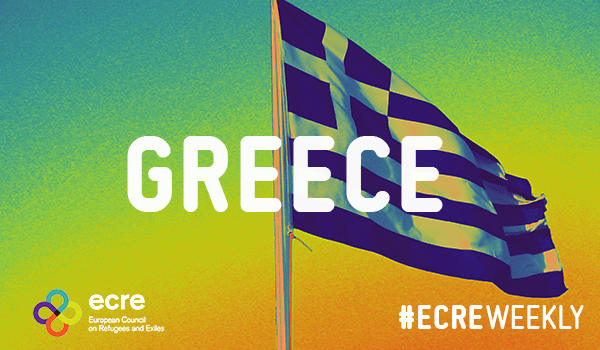Amid a high-level EU visit to Turkey seeking to reconfirm the EU-Turkey Agreement, Greece alleges Turkish facilitation of migration to Europe. Meanwhile, reports of pushbacks continue to mount and the situation in camps across Greece remain dire.
In their respective statements on 6 April following meetings with Turkish President Recep Tayyip Erdogan, Commission President Ursula von der Leyen, and President of the European Council Charles Michel both expressed a European commitment to finance Turkey’s hosting of 4 million Syrian refugees. While also reiterating the country’s obligations under the EU Turkey agreement from 2016: “We expect Turkey to stand by its commitments and deliver on them, this includes preventing irregular departures and it also includes resuming return operations from the Greek islands to Turkey without any delay,” von der Leyen said. Further, the continuation of the bilateral exploratory talks between Greece and Turkey were welcomed. However, In a letter to the Vice-President of the European Commission, Margaritis Schinas, and the EU Commissioner for Home Affairs, Ylva Johansson who recently visited Greece, Greek Minister for Migration and Asylum, Notis Mitarakis alleged Turkish facilitation of boats in the Aegean Sea trying to reach Europe and harassing the Greek coast guard. Meanwhile, reports of pushbacks from Greece continue to mount. Mare Liberum, monitoring the human rights situation for refugees in the Aegean Sea reported of several pushbacks including five incidents involving 231 people off Lesvos documented by the Turkish coast guard.
A significant decrease in arrivals in Greece is likely to be reflected in a reduction of the current flow of EU funding. However, a spike in arrivals via North Macedonia is reported with at least a 400 per cent increase in March and up to hundred people crossing a day. The situation in camps across Greece remains dire. Despite the announcement of the closure of the so-called Moria 2.0 camp in Kara Tepe by April 2021, the future of its residents remains unclear with ongoing negotiations between the government and local authorities on its EU sponsored replacement facility. However, the daily chaos for its more than 6,000 residents living in squalid conditions without fresh water supply and running electricity is well documented. On 5 April a fire allegedly caused by an improvised wood stove destroyed 15 tents in the VIAL camp on Chios. On 6 April NGOs released a report on the ‘invisible’ mental health emergency for asylum seekers on Samos arguing that: “asylum seekers face compounded mental health threats arising from how a lack of basic necessities, social exclusion, the Covid-19 pandemic and long asylum procedures impact on the already inherent challenges of displacement”. A serious COVID outbreak is reported in the Ritsona camp on the mainland with a camp resident stating: “I have COVID and four members of my family too, the number of infected people is raising every day and that is not shocking as a lot of people are living together in one house that makes it almost impossible to keep distance. 7-10 people, two families together”.
A press release from UNHCR Greece announced on 6 April a “Mechanism to rapidly identify unaccompanied children who are homeless or living in insecure conditions and transfer them to safe accommodation in the country. The mechanism includes a 24-hour hotline in six languages.
For further information:
- ECRE, Greece: Millions of EU Euros for Fenced Structures in the Aegean, Preventable Deaths in Detention, and Pushbacks Dismissed as “Fake News” by Greece, April 2021
- ECRE, Greece: Migrants Caught in the Middle of Border Showdown, Camp ‘Solutions’ Still A Long Way Off, Homelessness and Deprivation Follows Protection
Photo: ECRE
This article appeared in the ECRE Weekly Bulletin. You can subscribe to the Weekly Bulletin here.

